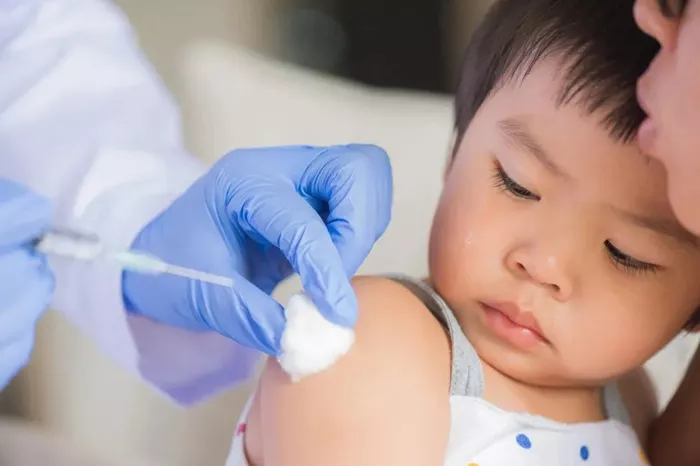Vaccine hesitancy, which first surfaced during the COVID-19 pandemic, has now extended to traditional childhood vaccinations. Parents who oppose vaccinating their children are gaining more political backing.
In February, Florida Surgeon General Joseph Ladapo sent a letter to families of students at a school with measles cases. He recommended children stay home until the infection period ends, but due to concerns about the impact on families and education, the Department of Health now leaves decisions on school attendance to parents or guardians.
This shift contradicts longstanding policies that isolate exposed children, especially those not immunized, highlighting new challenges in childhood vaccine politics post-COVID-19. Immunization rates dropped during the pandemic and haven’t fully recovered. Parents skeptical of COVID-19 vaccines are also hesitant about other childhood vaccines. The political and regulatory landscapes now present more obstacles for families and public health workers.
Even before COVID-19, vaccine rates were declining. While most parents fully immunize their children, an estimated 20 to 30 percent of American parents delay, space out, or skip certain vaccines. They’re not necessarily against vaccines but question the safety, necessity, and benefits of all vaccines equally.
Research shows these parents aren’t anti-science but trust their judgment over experts’, embracing cultural norms that emphasize personal responsibility for their children’s health.
Meanwhile, there’s been widespread neglect of public health, leading to staffing shortages and high turnover. From 2017 to 2021, nearly half of state and local public health workers resigned, with younger staff disproportionately affected. During the pandemic, public health leaders faced threats and harassment, further weakening the workforce. The dismissal of Tennessee’s immunization leader Michelle Fiscus in 2021 for promoting vaccine information underscores how COVID-19 vaccine politics impact all vaccinations.
Between 2021 and 2023, 65 laws in 24 states were enacted to restrict officials’ ability to implement disease prevention strategies. These include bans on vaccination proof requirements, limits on school, business, and church closures, and expanded vaccine exemptions. The implications for childhood vaccine mandates are uncertain but signal declining support for collective community responsibility.
There’s now greater emphasis on individual choice. Laws acknowledge children’s right to education without increased infection risk. Despite their intent to protect vulnerable children from disease, these laws increasingly support parents who oppose vaccines, as evidenced by Florida’s recent statement.
Parents should decide what’s best for their children, a sentiment valid before and after COVID-19. However, this focus on individual parenting overlooks how infectious diseases connect us, surpassing personal choices.
Support for allowing unvaccinated children full access to education and childcare, without considering community protection measures, could worsen ongoing public health challenges.


